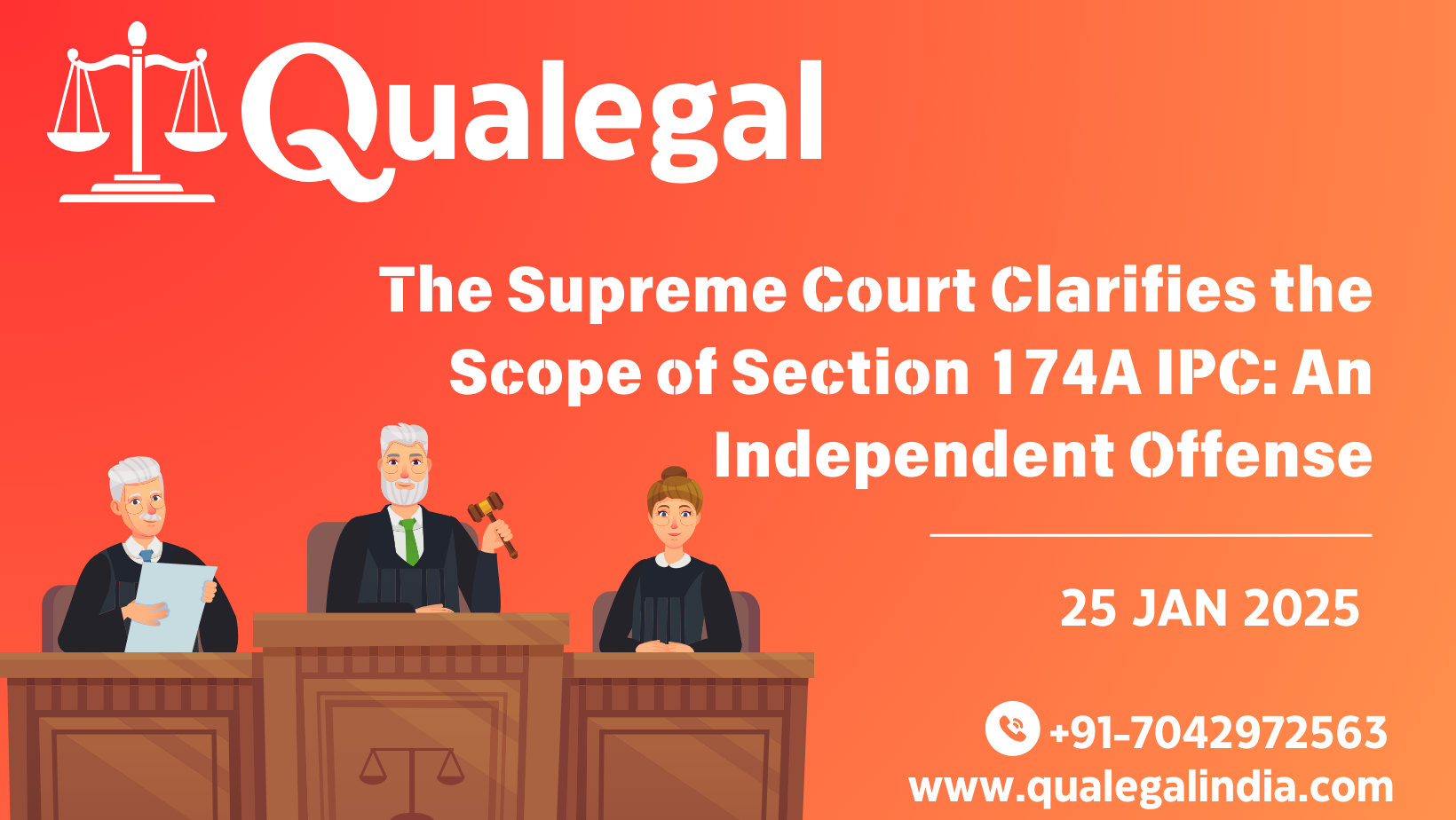The Supreme Court Clarifies the Scope of Section 174A IPC: An Independent Offense
In a landmark judgment, the Supreme Court of India has provided a crucial interpretation of Section 174A of the Indian Penal Code (IPC), shedding light on its independent and substantive nature. This decision has profound implications for individuals who have been declared proclaimed offenders under Section 82 of the Code of Criminal Procedure (CrPC). The ruling reinforces the legislative intent behind Section 174A IPC and clarifies its relationship with the procedural requirements under Section 82 CrPC.
Section 82 of the CrPC provides courts with the authority to issue a proclamation against individuals who deliberately abscond or conceal themselves to evade arrest. When an individual fails to appear in court as mandated by such a proclamation, the law empowers the court to declare them a proclaimed offender. Section 174A of the IPC criminalizes such non-appearance and stipulates penalties for anyone failing to comply with the requirements set forth in the proclamation.
The Supreme Court’s recent ruling in Daljit Singh Vs. State of Haryana and Ors. [Criminal Appeal No. 4359 of 2024] squarely addresses these issues. The Court emphasized that the offense under Section 174A IPC is an independent infraction. It is triggered at the moment an individual fails to appear in response to the court's proclamation. This failure to comply constitutes a distinct and self-contained violation, separate from the legal status of the proclamation itself. The Court underscored that even if the proclamation under Section 82 CrPC is subsequently annulled or extinguished, the prosecution for non-appearance under Section 174A IPC remains valid and enforceable. This interpretation aligns with the legislative objective of ensuring accountability for deliberate non-compliance with court orders.
A significant dimension of this judgment relates to situations where the individual declared as a proclaimed offender is later acquitted of the original offense. The Supreme Court acknowledged that while Section 174A IPC is a standalone offense, an acquittal in the underlying case could influence the proceedings under this provision. If a person is exonerated from the primary charges, the court trying the case under Section 174A IPC may consider this as a ground to review and potentially conclude the proceedings for failure to appear. The Court highlighted that such discretion rests with the trial court, which may examine whether the acquittal negates the basis for the initial proclamation and subsequent prosecution under Section 174A.
This landmark ruling has far-reaching consequences. By affirming the independence of Section 174A IPC, the Supreme Court has ensured that individuals cannot exploit procedural loopholes to evade accountability for failing to comply with court directives. At the same time, the Court has balanced this principle with judicial discretion, allowing trial courts to consider the implications of acquittals in the original offense. This nuanced approach upholds the rule of law while safeguarding the rights of individuals against potential misuse of procedural provisions.
The judgment reinforces the principle that the administration of justice demands both strict adherence to procedural laws and fairness in their application. By clarifying the independent nature of Section 174A IPC and addressing its relationship with Section 82 CrPC, the Supreme Court has provided much-needed clarity, strengthening the legal framework governing proclaimed offenders and ensuring a more effective justice delivery system.


